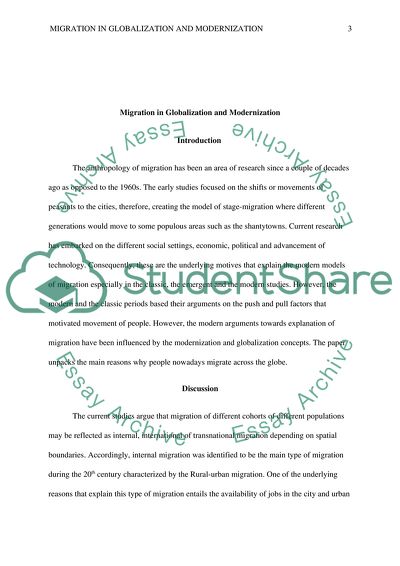Cite this document
(Migration in Globalization and Modernization Term Paper Example | Topics and Well Written Essays - 1500 words, n.d.)
Migration in Globalization and Modernization Term Paper Example | Topics and Well Written Essays - 1500 words. https://studentshare.org/anthropology/1879324-migration-in-globalization-and-modernization
Migration in Globalization and Modernization Term Paper Example | Topics and Well Written Essays - 1500 words. https://studentshare.org/anthropology/1879324-migration-in-globalization-and-modernization
(Migration in Globalization and Modernization Term Paper Example | Topics and Well Written Essays - 1500 Words)
Migration in Globalization and Modernization Term Paper Example | Topics and Well Written Essays - 1500 Words. https://studentshare.org/anthropology/1879324-migration-in-globalization-and-modernization.
Migration in Globalization and Modernization Term Paper Example | Topics and Well Written Essays - 1500 Words. https://studentshare.org/anthropology/1879324-migration-in-globalization-and-modernization.
“Migration in Globalization and Modernization Term Paper Example | Topics and Well Written Essays - 1500 Words”. https://studentshare.org/anthropology/1879324-migration-in-globalization-and-modernization.


